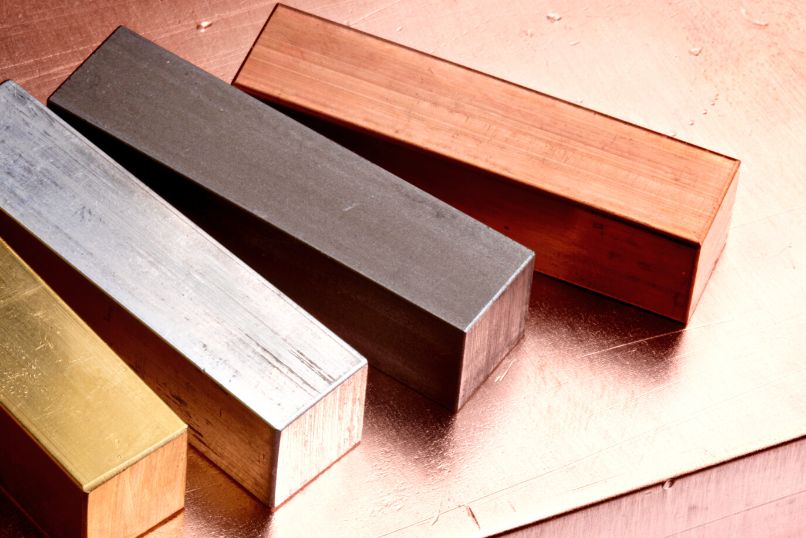Aluminum bronze is a special alloy that combines copper, aluminum, and other metals. It has been used for centuries due to its excellent machinability and strength, making it a popular choice for engineering applications.
But when it comes to aluminum bronze standards, there are a few things to keep in mind. Let’s take a closer look at the standard specification for aluminum bronze so you can ensure your projects go well.
ASTM B150-19 Standard Specification
This ASTM standard provides the requirements for aluminum bronze rods, bars, and shapes commonly used in industrial applications such as valves, pumps, marine hardware, bearings, and more.
The standard covers grades of aluminum bronze with varying levels of copper and aluminum content (from 8%–11% aluminum). To meet this standard, all materials must get a test for their mechanical properties, such as tensile strength, yield strength, and elongation. The testing must use ASTM test methods, and the results must meet or exceed those specified by the ASTM B150-19 standard specification.
ISO 9223 Corrosion of Metals and Alloys
This international standard outlines the requirements for conducting salt spray tests on materials such as aluminum bronzes. These tests simulate real-world conditions to measure how well these materials will stand up against corrosion caused by exposure to water or saltwater environments.
The test involves spraying sodium chloride solution onto a sample material while measuring the amount of corrosion during the test period. We then compare against the requirements outlined in ISO 9223 to determine if the material meets or exceeds those standards.
ASME SB-417 Standard Specification
This ASME standard covers stainless steel bolts and studs used in fluid service applications such as valves, pumps, and turbines. It includes requirements for threading dimensions and mechanical properties such as tensile strength, yield strength, and elongation; any materials under this specification must meet or exceed these requirements.
This specification includes materials made from aluminum bronzes which must meet these requirements before anyone can use them in any application where fluids could come into contact with them.
Aluminum bronze is an incredibly versatile alloy used in various engineering applications due to its excellent machinability and strength properties. However, depending on the application, certain standards must be met when using this material. By understanding these standards, you can ensure that your projects are built up to the highest quality possible while also meeting all necessary safety regulations.
Whether you are looking for C63200 nickel aluminum bronze for bolts or rods made of any alloy, make sure you understand what specifications they need to meet before purchasing them!
Wieland Diversified is the industry leader in providing quality aluminum bronze solutions meeting these standards. Our knowledgeable staff can help you find the perfect alloy for any project, ensuring that it meets or exceeds ASTM, ISO, and ASME requirements. Contact us today for more information on our aluminum bronze solutions!

